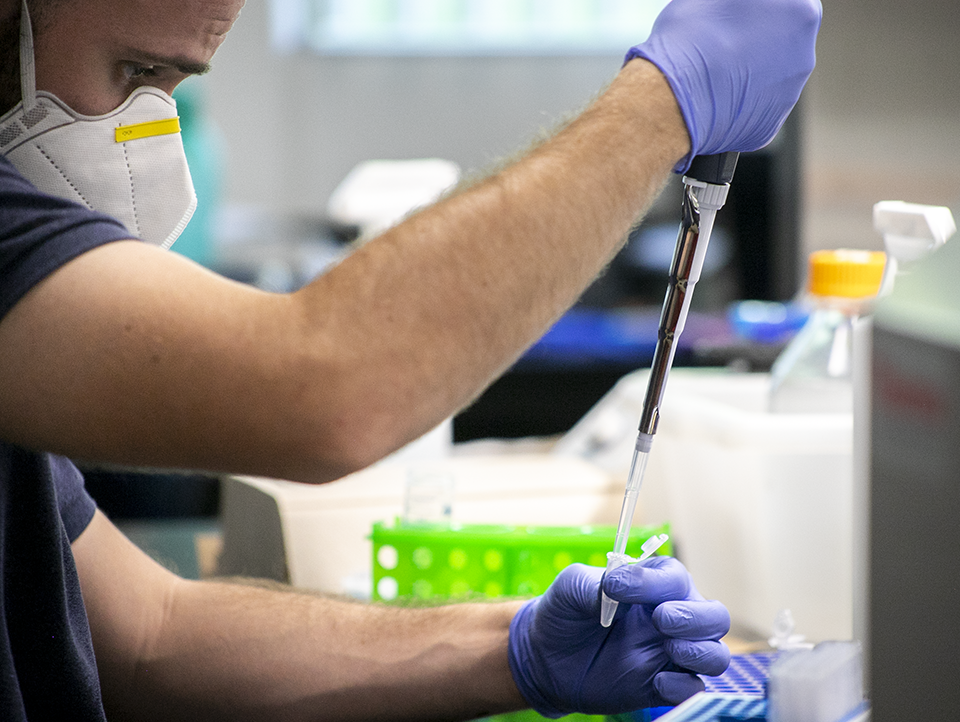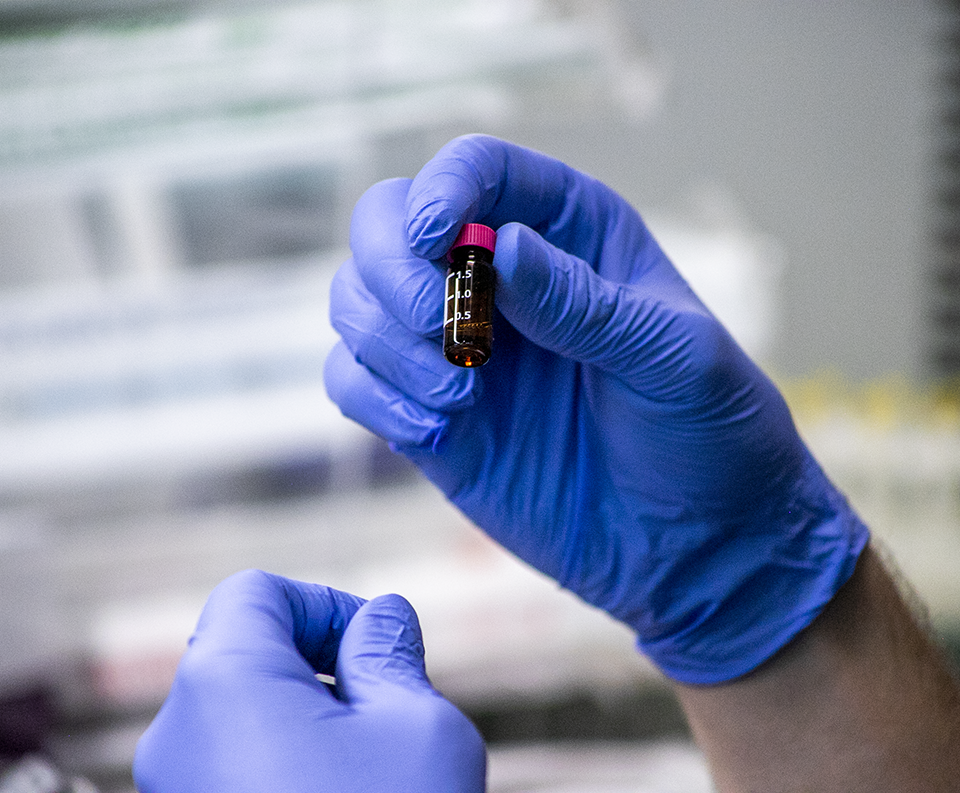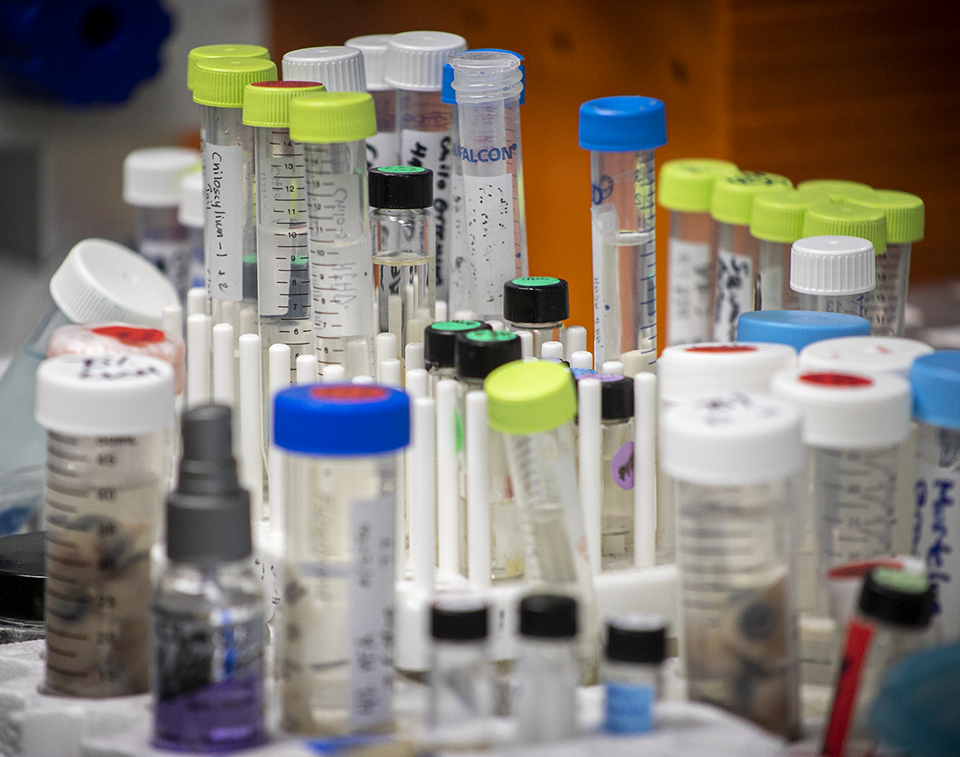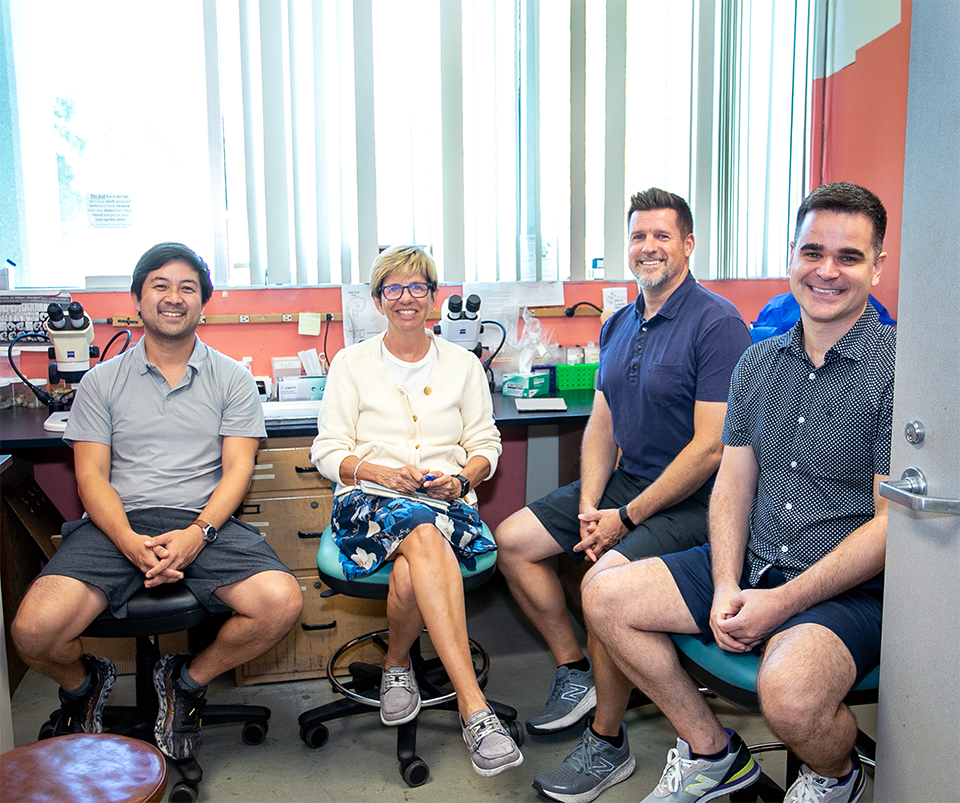Interdisciplinary CSU Cancer Meeting Returns — and With It, Opportunity and Collaboration
This month, aspiring scientists, alumni and CSU students of any major have the opportunity to spend a full day learning about the latest advances in cancer research, from some of the nation’s brightest scientists. The third biennial California State University – Interdisciplinary Cancer Meeting (CSU-ICM) is scheduled to take place at 8 a.m. on Friday, Oct. 21, at the Orchard Conference Center on the CSUN campus.
Professors Jonathan Kelber, Maria Elena de Bellard, Daniel Tamae and Eduardo Amorim of CSUN’s College of Science and Mathematics have organized and coordinated the conference, in collaboration with their graduate and undergraduate student trainees. 2022 marks the third time CSUN has hosted the conference, and the first time the event will be held in person since 2018. (The last conference was held virtually via Zoom, in 2020.)
The daylong program is meant to be all-encompassing and open to anyone interested in research. Tamae, an assistant professor of biochemistry, reflected on the importance of creating such opportunities for CSU students.
“There’s talent here,” Tamae said. “The mandate to diversify the STEM fields — that starts with getting diverse students into the pipeline.”
The symposium will highlight various types of cancer and discuss the mortality rate of cancer in general, which remains at greater than 30%. The plenary speakers for the conference are Amanda Bryant-Friedrich, dean of the Wayne State University Graduate School, and Thea Tlsty, a professor in pathology at University of California, San Francisco. These nationally prominent speakers will share their wisdom and experience with students and other attendees, organizers said, but the meeting’s structure differs in one key way this year: This time, CSU students took the lead.
The student planners organized the day’s program to consist of four sessions with four speakers, many of whom are graduate students from CSU campuses such as Pomona, San Diego and San Francisco. In addition, participating institutions such as UCLA, USC, City of Hope and Keck Graduate Institute will allow students to engage with recruiters and faculty from their Ph.D. programs. The dynamic conference has been more than 18 months in the works.
Kelber, a professor of biology, noted that many students, once they complete their undergraduate and/or graduate research at Northridge, want to continue lab research in the field.
“We have a large cohort of students at CSUN who want to go get Ph.Ds. It’s really nice to have the opportunity to marry the CSU system with Ph.D.-granting institutions, through this interdisciplinary meeting,” Kelber said.
Cost for the day’s program — including lunch — is just $20. Sponsors include CSUN Research and Sponsored Programs, CSUN Graduate Studies, the Department of Biology, the Department of Chemistry and Biochemistry, and equipment manufacturer Zeiss, to name a few. For more information or to register, visit: https://www.csu-icm.org.





 experience
experience